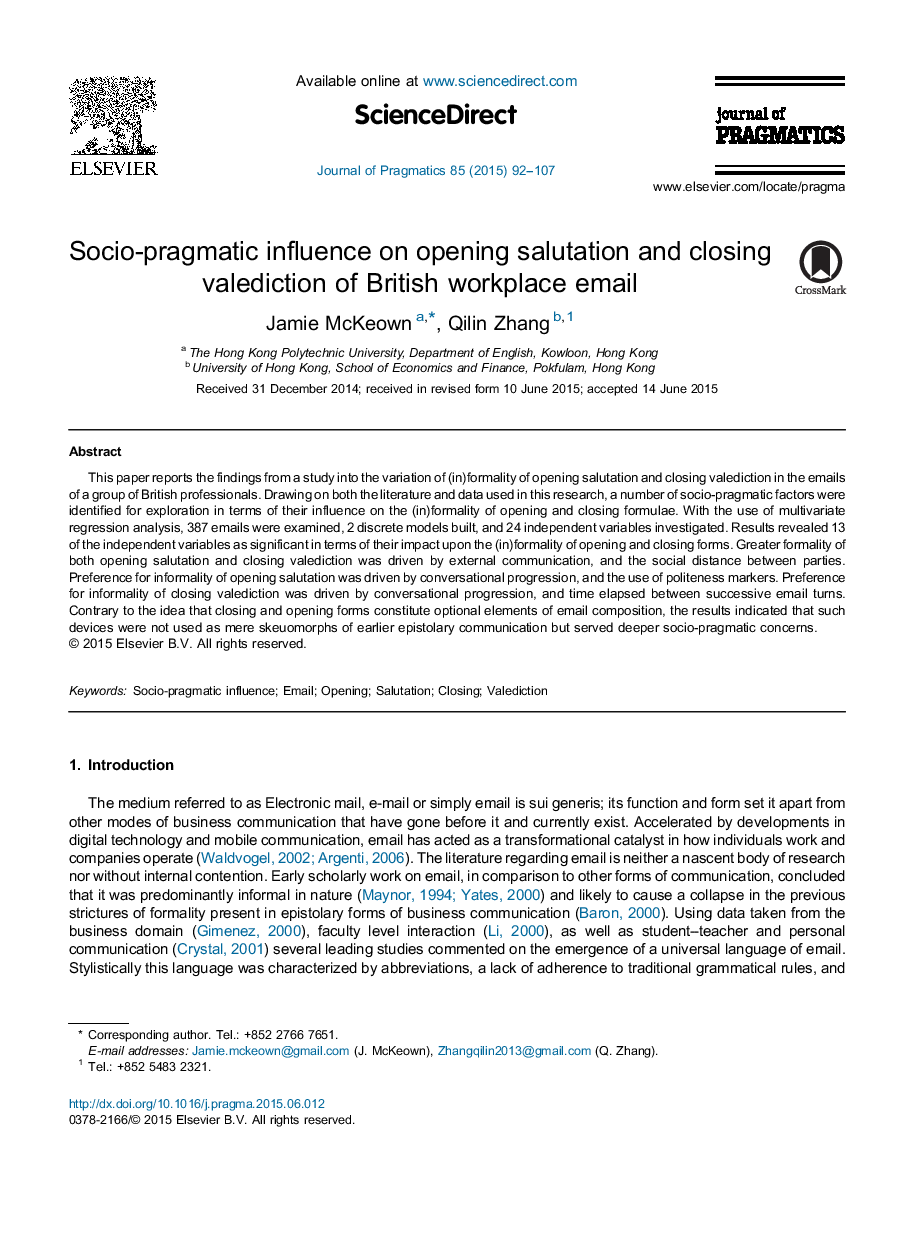| Article ID | Journal | Published Year | Pages | File Type |
|---|---|---|---|---|
| 932590 | Journal of Pragmatics | 2015 | 16 Pages |
•Socio-pragmatic influence was modeled for its impact on salutation and valediction.•(in)formality was designated as the key parameter for investigation.•387 emails taken from a private British company were used for analysis.•External communication and social distance drove greater formality.•Conversational progression and compensatory politeness markers drive informality.
This paper reports the findings from a study into the variation of (in)formality of opening salutation and closing valediction in the emails of a group of British professionals. Drawing on both the literature and data used in this research, a number of socio-pragmatic factors were identified for exploration in terms of their influence on the (in)formality of opening and closing formulae. With the use of multivariate regression analysis, 387 emails were examined, 2 discrete models built, and 24 independent variables investigated. Results revealed 13 of the independent variables as significant in terms of their impact upon the (in)formality of opening and closing forms. Greater formality of both opening salutation and closing valediction was driven by external communication, and the social distance between parties. Preference for informality of opening salutation was driven by conversational progression, and the use of politeness markers. Preference for informality of closing valediction was driven by conversational progression, and time elapsed between successive email turns. Contrary to the idea that closing and opening forms constitute optional elements of email composition, the results indicated that such devices were not used as mere skeuomorphs of earlier epistolary communication but served deeper socio-pragmatic concerns.
